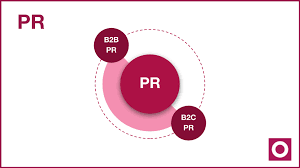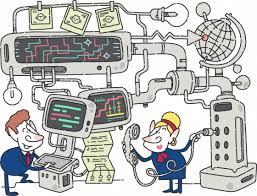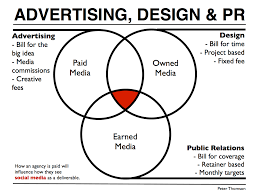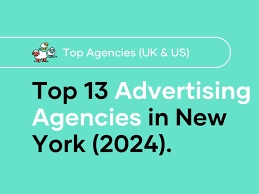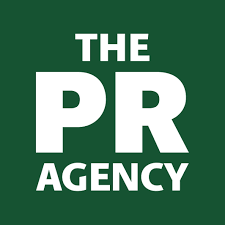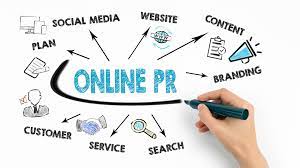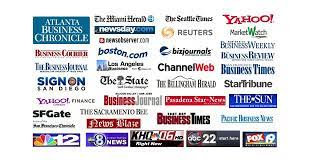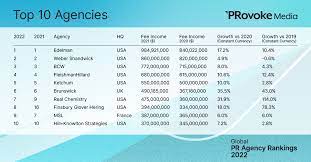PR Companies: Building Strong Brands and Effective Communication
In today’s competitive business landscape, effective communication and brand reputation play a crucial role in the success of any company. This is where Public Relations (PR) companies come into the picture. PR companies are dedicated to helping businesses build strong brands, manage their reputation, and effectively communicate with their target audience.
One of the primary functions of PR companies is to create and implement strategic communication plans that align with the goals and objectives of their clients. They work closely with businesses to understand their unique selling points, target market, and industry landscape. With this knowledge, PR professionals develop tailored strategies to enhance brand visibility and engagement.
One key aspect of PR companies’ work is media relations. They establish relationships with journalists, bloggers, influencers, and other media professionals to secure impactful media coverage for their clients. By crafting compelling press releases, organising press conferences or events, and pitching story ideas to relevant media outlets, PR companies help businesses gain valuable exposure in the media.
Brand reputation management is another vital area where PR companies excel. They monitor online conversations about their clients’ brands and swiftly address any negative publicity or crisis situations. Through proactive measures like creating positive narratives, engaging with customers on social media platforms, and handling potential issues transparently, PR professionals protect and enhance their clients’ reputations.
PR companies also play a significant role in building thought leadership for businesses. By positioning key executives as industry experts through thought-provoking articles in reputable publications or securing speaking opportunities at conferences or webinars, they help establish credibility and authority for their clients within their respective industries.
In addition to traditional PR practices, many PR companies have adapted to the digital age by incorporating digital marketing strategies into their services. They leverage social media platforms, content marketing techniques, influencer collaborations, and search engine optimization (SEO) tactics to amplify brand messaging across various online channels.
Collaboration is at the heart of successful PR campaigns. PR companies work closely with their clients, acting as trusted partners and advisors. They take the time to understand the client’s values, goals, and target audience, enabling them to develop communication strategies that resonate with their stakeholders.
Furthermore, PR companies bring a wealth of industry knowledge and expertise to the table. With experience across various sectors and access to market insights, they provide valuable guidance on industry trends, competitor analysis, and emerging opportunities. This enables businesses to stay ahead of the curve and make informed decisions when it comes to their communication strategies.
In conclusion, PR companies are essential for businesses looking to build strong brands and establish effective communication with their target audience. From media relations and reputation management to thought leadership and digital marketing, these companies offer a comprehensive range of services tailored to meet each client’s unique needs. By partnering with a reputable PR company, businesses can enhance their brand image, increase visibility, and ultimately achieve long-term success in today’s competitive market.
7 Essential Tips for Choosing the Right PR Company
- Research potential PR companies thoroughly to ensure they have the right skills and experience for your needs.
- Ask for references from clients who have used their services in the past.
- Make sure you understand what services the PR company offers and how much it will cost before signing a contract.
- Discuss with them what you want to achieve from your PR campaign and ensure that they are able to deliver this for you.
- Agree on key performance indicators so you can measure the success of the campaign afterwards.
- Keep lines of communication open between yourself and the PR company during the campaign, so that any problems or changes can be addressed quickly and effectively.
- Monitor progress throughout, ensuring that deadlines are met and results are achieved in line with expectations
Research potential PR companies thoroughly to ensure they have the right skills and experience for your needs.
When it comes to selecting a PR company for your business, thorough research is key to finding the right fit. With countless options available, it’s crucial to ensure that the PR company you choose has the skills and experience necessary to meet your specific needs.
First and foremost, take the time to understand your own requirements. Identify your communication goals, target audience, and the industry landscape in which you operate. This will help you narrow down your search and find a PR company that specializes in your sector or has relevant experience.
Start by exploring their website and online presence. Look for case studies or client testimonials that demonstrate their track record of success. Pay attention to the industries they have worked with and the specific services they offer. This will give you an idea of whether they have the expertise you require.
Additionally, research their team members and their backgrounds. Assess their qualifications, experience levels, and areas of specialization. A diverse team with a range of skills can bring valuable perspectives to your communication strategy.
Don’t hesitate to reach out for references or ask for examples of previous work they have done for clients similar to you. This will give you insights into their approach, creativity, and ability to deliver results.
Consider meeting with potential PR companies in person or via video conference if possible. This allows you to gauge their professionalism, communication style, and overall compatibility with your team.
It’s also important to discuss budget and expectations upfront. Be transparent about what you are looking for and what resources you have available. A reputable PR company will be honest about what they can deliver within your budget constraints.
Finally, trust your instincts but also rely on data-driven decision-making. Choose a PR company that not only aligns with your vision but also demonstrates a solid understanding of industry trends and best practices.
Remember, selecting a PR company is an investment in building your brand reputation and achieving effective communication outcomes. By thoroughly researching potential PR companies before making a decision, you can ensure that you partner with a team that has the right skills, experience, and expertise to meet your unique needs.
Ask for references from clients who have used their services in the past.
When considering hiring a PR company, one valuable tip to keep in mind is to ask for references from clients who have previously used their services. This simple step can provide you with important insights into the PR company’s track record and the quality of their work.
By requesting references, you gain the opportunity to connect with past clients and hear about their firsthand experiences. These references can offer valuable information about the PR company’s professionalism, effectiveness, and ability to deliver results.
Speaking directly with previous clients allows you to ask specific questions related to your needs and expectations. You can inquire about the outcomes they achieved, whether it be increased media coverage, improved brand reputation, or successful campaign launches. It also provides an opportunity to learn about any challenges they faced and how the PR company handled them.
References can provide a clearer picture of the PR company’s strengths and weaknesses. They may highlight specific areas where the company excelled or areas where improvements could be made. This information can help you make an informed decision when selecting a PR partner that aligns with your business goals.
Furthermore, by reaching out to previous clients, you gain a sense of trust and confidence in your potential collaboration with the PR company. Knowing that others have had positive experiences working with them instills a level of reassurance that they are capable of delivering on their promises.
Remember that references should not be seen as just a formality but rather as an essential step in evaluating a PR company’s credibility and capabilities. It is recommended to request multiple references from different industries or sectors relevant to your business. This will provide a broader perspective on the PR company’s versatility and adaptability across various fields.
In conclusion, asking for references from clients who have previously utilized a PR company’s services is an invaluable tip when selecting the right partner for your communication needs. The insights gained from these conversations allow you to make an informed decision based on real experiences and outcomes. By taking this proactive approach, you can increase the likelihood of finding a reputable PR company that will effectively represent and elevate your brand.
Make sure you understand what services the PR company offers and how much it will cost before signing a contract.
When it comes to hiring a PR company, one crucial tip is to ensure that you have a clear understanding of the services they offer and the associated costs before signing any contract. This step is essential to avoid any surprises or misunderstandings down the line.
First and foremost, take the time to thoroughly research and evaluate different PR companies. Look into their track record, client testimonials, and case studies to gauge their expertise and success in delivering results. Once you have shortlisted potential candidates, schedule consultations or meetings to discuss your specific needs and objectives.
During these discussions, be sure to ask detailed questions about the services they provide. Understand what strategies they will employ to achieve your communication goals. For example, inquire about media relations, content creation, crisis management, digital marketing, or any other specific areas that are relevant to your business.
Equally important is gaining clarity on the cost structure of their services. Request a breakdown of fees or a comprehensive pricing proposal that outlines what you can expect in terms of costs. This will help you assess whether their pricing aligns with your budget and whether it offers good value for the services provided.
It’s also worth discussing any potential additional expenses that may arise during the course of your engagement with the PR company. These could include media monitoring tools, event management costs, or travel expenses if applicable. Understanding these potential extras upfront will prevent any unexpected financial burdens later on.
By taking the time to understand the services offered by a PR company and clarifying all associated costs before signing a contract, you can make an informed decision that aligns with your business goals and budgetary constraints. This transparency will foster a strong working relationship built on trust and ensure that both parties are on the same page from day one.
Remember, effective communication is key throughout this process. Don’t hesitate to ask for clarification or seek further information if anything is unclear. A reputable PR company will be more than willing to address your concerns and provide the necessary information to help you make an informed decision.
In conclusion, before signing a contract with a PR company, ensure that you have a thorough understanding of the services they offer and the associated costs. This will help you avoid any surprises and ensure a successful partnership that drives your business’s communication goals forward.
Discuss with them what you want to achieve from your PR campaign and ensure that they are able to deliver this for you.
When partnering with a PR company, it is crucial to have clear goals and expectations for your PR campaign. Communication is key in ensuring that the PR company understands your vision and can deliver the desired outcomes.
Start by discussing your objectives and what you hope to achieve through the PR campaign. Whether it’s increasing brand awareness, launching a new product, improving reputation, or generating media coverage, clearly articulate your goals to the PR company.
A reputable PR company will take the time to listen and understand your needs. They will ask questions to gain a deeper understanding of your industry, target audience, and competition. This information allows them to develop a tailored strategy that aligns with your objectives.
During these discussions, it’s important to evaluate whether the PR company has the capabilities and expertise to deliver what you expect. Ask about their previous experience working on similar campaigns or within your industry. Request case studies or examples of successful campaigns they have executed.
Transparency is crucial in this process. Make sure you discuss budget constraints, timelines, and any specific requirements you may have. A good PR company will be honest about what they can achieve within these parameters.
Additionally, ensure that there is open communication throughout the campaign. Regular updates and progress reports should be provided so that you can track the success of your PR efforts. A reliable PR company will be responsive to any concerns or questions you may have along the way.
Remember, collaboration is key in achieving success with your PR campaign. By discussing your objectives with the PR company upfront and ensuring they are capable of delivering on those goals, you set a solid foundation for a fruitful partnership that can elevate your brand’s visibility and reputation.
Measuring Success: The Importance of Key Performance Indicators in PR Campaigns
In the world of Public Relations (PR), it’s not enough to simply launch a campaign and hope for the best. To truly understand the impact and effectiveness of your PR efforts, it is crucial to establish clear Key Performance Indicators (KPIs) from the outset.
KPIs serve as measurable goals that allow you to track and evaluate the success of your PR campaign. By agreeing on specific KPIs with your PR company, you can set realistic expectations and ensure that your efforts align with your overall objectives.
One common KPI in PR campaigns is media coverage. This could involve tracking the number of press releases published, articles secured in target publications, or mentions on influential blogs or social media platforms. Monitoring media coverage helps gauge brand visibility and reach, providing valuable insights into how well your message is resonating with your target audience.
Another important KPI is audience engagement. This can include metrics such as website traffic, social media interactions (likes, shares, comments), or event attendance. By measuring audience engagement, you can assess how effectively your PR campaign is driving interest and creating a connection with your target market.
Brand sentiment is yet another vital KPI to consider. Monitoring online conversations about your brand allows you to evaluate public perception and sentiment towards your company. Positive sentiment indicates that your messaging is resonating well with the audience, while negative sentiment may signal areas for improvement or potential reputation management issues.
Lead generation and conversion rates are also significant KPIs in PR campaigns. By tracking how many leads are generated as a result of specific PR activities and monitoring their progression through the sales funnel, you can directly attribute business outcomes to your PR efforts.
It’s important to note that not all KPIs will be relevant for every campaign or business. The key is to identify which metrics align with your goals and objectives before launching the campaign. Discussing and agreeing on these KPIs with your PR company ensures that everyone is on the same page and working towards measurable success.
Regularly reviewing and analysing the data collected against your KPIs allows you to make informed decisions about the effectiveness of your PR campaign. It provides insights into what strategies are working well and what areas may require adjustments or further investment.
In conclusion, agreeing on key performance indicators is a crucial step in any PR campaign. By setting measurable goals, you can track the success of your efforts, understand their impact on your brand’s visibility and reputation, and make data-driven decisions to optimize future campaigns. With the right KPIs in place, you can ensure that your PR activities are aligned with your overall business objectives, helping you achieve long-term success in the competitive world of public relations.
Keep lines of communication open between yourself and the PR company during the campaign, so that any problems or changes can be addressed quickly and effectively.
Effective Communication: Key to a Successful PR Campaign
When it comes to working with a PR company for your campaign, one crucial tip stands out: keeping lines of communication open. Maintaining regular and transparent communication between yourself and the PR company is vital to address any problems or changes promptly and effectively.
During a PR campaign, various factors may arise that require adjustments or modifications. It could be an unexpected change in the market landscape, a shift in your business objectives, or even unforeseen challenges. By establishing clear channels of communication with your PR company from the outset, you can ensure that any issues are swiftly addressed and resolved.
Open lines of communication allow for seamless collaboration between you and the PR professionals. Regular updates on campaign progress, ongoing discussions about strategies and tactics, and sharing feedback are all essential components of effective communication. By staying informed about the campaign’s progress, you can provide timely input and make necessary adjustments as required.
In addition to addressing problems, open communication fosters an environment of trust and collaboration. It allows both parties to share ideas, insights, and concerns openly. This collaborative approach ensures that everyone involved is aligned with the campaign’s goals and objectives, resulting in more cohesive messaging and strategies.
Another advantage of maintaining open lines of communication is the ability to adapt quickly to changes in circumstances. As markets evolve rapidly, being able to respond swiftly is crucial for maintaining relevance and capitalizing on emerging opportunities. By keeping your PR company informed about any shifts in your business or industry landscape, they can adjust their strategies accordingly to keep your campaign on track.
Furthermore, effective communication helps manage expectations on both sides. Clearly conveying your goals, desired outcomes, timelines, and budgetary constraints allows the PR company to tailor their efforts accordingly. Likewise, they can provide you with realistic expectations regarding what can be achieved within specific parameters.
To foster effective communication with your PR company during a campaign:
- Establish clear channels: Determine preferred modes of communication, such as email, phone calls, or regular meetings. Ensure that these channels are easily accessible to both parties.
- Set regular check-ins: Schedule periodic meetings or calls to review campaign progress, address any concerns, and provide updates. This helps maintain a consistent flow of information and allows for timely adjustments.
- Be responsive: Respond promptly to queries or requests from your PR company. Timely feedback and input enable them to make necessary changes swiftly and keep the campaign on track.
- Share updates: Inform your PR company about any significant developments in your business or industry that may impact the campaign. This ensures they have the most up-to-date information to inform their strategies.
By keeping lines of communication open with your PR company throughout the campaign, you create an environment conducive to collaboration, problem-solving, and adaptability. This proactive approach enhances the chances of achieving your desired outcomes while maintaining a strong working relationship with your PR professionals.
Monitor progress throughout, ensuring that deadlines are met and results are achieved in line with expectations
Monitoring Progress: Ensuring Timely Results and Expectation Alignment with PR Companies
When partnering with a PR company, it is crucial to establish clear expectations and goals for your communication campaigns. However, it doesn’t stop there. To ensure that these expectations are met and results are achieved in line with your objectives, it is essential to monitor progress throughout the PR process.
One of the key aspects of monitoring progress is keeping a close eye on deadlines. PR campaigns often involve multiple tasks and deliverables, such as press releases, media outreach, or event planning. By regularly reviewing the project timeline and ensuring that deadlines are being met, you can maintain momentum and avoid unnecessary delays.
Effective communication between your business and the PR company is vital during this monitoring process. Regular check-ins or status updates allow both parties to stay informed about the campaign’s progress, address any potential issues promptly, and make necessary adjustments if required. This open line of communication helps maintain alignment with your expectations.
Monitoring progress also involves assessing the results achieved by the PR company. This can be done through various metrics such as media coverage, website traffic, social media engagement, or customer feedback. By regularly reviewing these metrics, you can gauge the effectiveness of the PR campaign and determine if it aligns with your desired outcomes.
In cases where results may not meet initial expectations or objectives, it is important to have constructive discussions with the PR company. This allows both parties to identify any challenges or areas for improvement and work together towards finding solutions. A collaborative approach ensures that adjustments can be made promptly to steer the campaign back on track.
By monitoring progress throughout your partnership with a PR company, you demonstrate an active involvement in achieving your communication goals. It helps maintain accountability on both sides and ensures that any necessary course corrections can be made in a timely manner.
In conclusion, monitoring progress throughout your collaboration with a PR company is crucial for achieving timely results in line with expectations. By keeping an eye on deadlines, maintaining open communication, and regularly reviewing campaign metrics, you can actively contribute to the success of your PR efforts. This proactive approach allows for adjustments and optimizations along the way, ultimately helping you maximize the impact of your communication campaigns.



